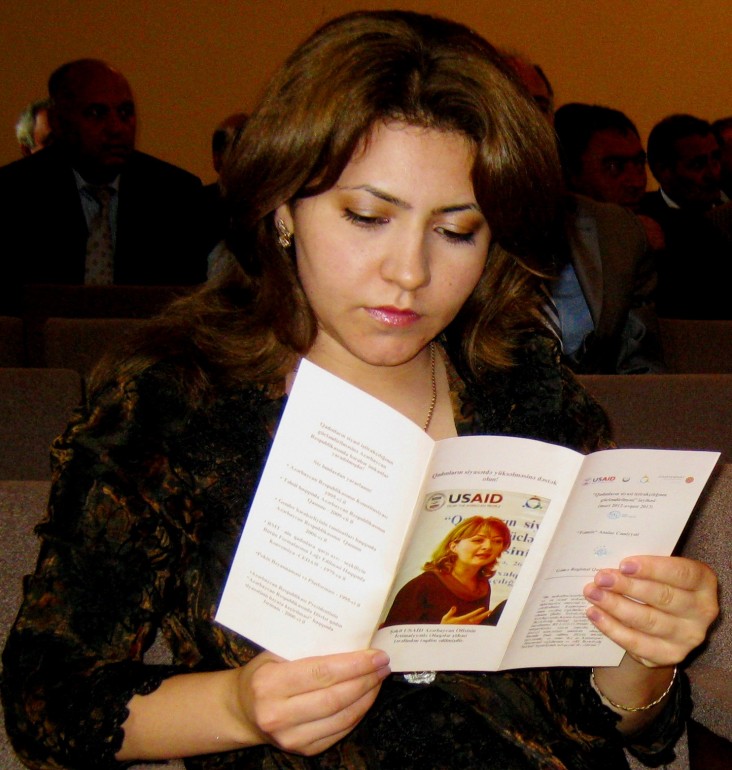
When a crowd of around 70 people listened to Aytekin Verdiyeva make an impassioned speech in August 2012 on women’s leadership in Azerbaijan, no one could have guessed it was her first public oration. Her feelings seemed to overwhelm her as she made her first speech as a government official.
Constrained by conservative social values, most women in Azerbaijan never achieve prominence in public and professional roles. But if Verdiyeva’s story is any indication, that situation is gradually changing.
The shy 29-year-old struggled to find a job after graduating from the Azerbaijan Technology Institute in 2006, and says she had very little confidence in her skills and capacity. But Verdiyeva’s perception of herself and her career potential transformed while she was attending women’s leadership workshops organized by the Ganja Regional Women’s Center in 2012.
For the past year, the Center has been working with women in four regions of Azerbaijan to overcome their limitations, both self-perceived and imposed by society, and pursue more visible public roles. The Center has offered seminars and workshops on women’s leadership and increasing women’s involvement in decision making.
The trainings were made possible by the USAID-supported Women’s Participation Program, which is designed to improve the status of women in Azerbaijan by raising public awareness on issues that affect women and empowering more women to engage in political processes. The program, which runs from 2011 to 2015, is implemented by Counterpart International in close partnership with 13 local women’s organizations and Azerbaijan’s State Committee for Women, Family and Children’s Affairs.
“I would say without exaggeration that confidence blossomed in my inner world after participating in the leadership events organized by the Women’s Participation Program,” says Verdiyeva.
In fact, she became one of the most active participants. Rising rapidly from her position as a government clerk, Verdiyeva quickly claimed the position of senior adviser of the State Social Security Fund in just three years.
Verdiyeva acknowledges that the leadership seminars helped her make the decision to apply for the senior adviser vacancy she saw advertised. She successfully passed interviews, surpassing other qualified male and female candidates.
“Aytekin Verdiyeva became a good role model for her peers,” says Maleyka Alizade, the executive director of the Ganja Regional Women’s Center. “Our women have great capacity for leadership and political participation.”







Comment
Make a general inquiry or suggest an improvement.